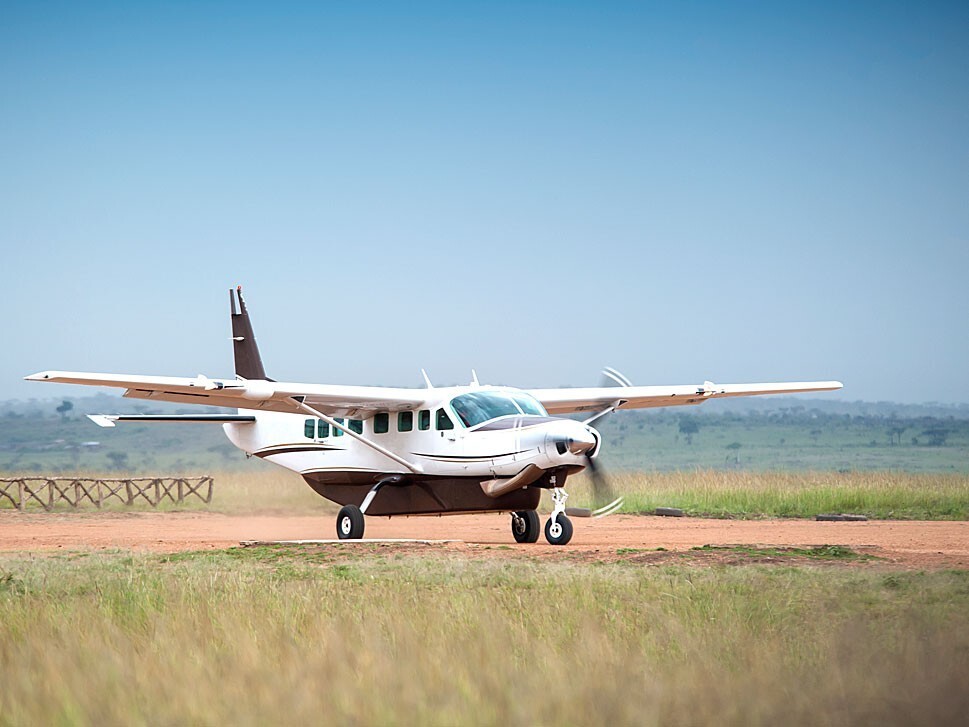- 28 Sep 2022
- Jane Stanbury
- AvBuyer Africa Articles
Understanding the Leasing Landscape of Africa
Aircraft leasing has taken a sudden, almost unexpected upturn throughout Africa in the last few years. Sherryn de Vos provides an outline of what’s been happening…
Back to Articles
Historically, aircraft operators have faced intense competition over new business, especially from the larger operators who offer larger fleets and more capabilities. These bigger players have held the monopoly over the market, offering clients turnkey services, sometimes at extortionate prices.
However, in the last few years, the leasing landscape has changed remarkably. Smaller aircraft operators are now finding themselves more able to land profitable clients, and, better still, retain them as repeat business.
So, what has prompted the shift? What factors have led to smaller companies in Africa being offered a bigger share of the aviation pie?
The Pandemic Wreaked Havoc on the Industry
Unsurprisingly, the COVID-19 pandemic has played a significant part in changing the landscape. In fact, the pandemic had the biggest impact on some of the larger operators. Some simply did not make it through the barrage of restrictions and lockdowns that took place in the travel and tourism industry.
With borders being shut, businesses unable to travel, and tourism restricted, those larger operators simply could not keep up with their overhead costs and lack of income and had to shut their doors. This, in turn, opened the door for smaller operators to swoop once restrictions started lifting again.
While they may not have been able to offer the same fleets and capabilities as the larger operators, clients’ requirements had also changed significantly during the pandemic. Corporations needing to travel are no longer looking for jets to get them around the continent. There has been a drastic shift toward clients opting to send smaller teams and picking turboprops over jets.
This could be based on reduced budgets on their side, due to the pandemic, as well as simply not wanting to expose so many employees at one time.
The Demise of Commercial Airlines
Moreover, in June 2022, Government-owned Mango and Comair as well as their local partner, British Airways, halted all of their low-cost flights in South Africa, leaving passengers stranded nationally. Reminiscent of the grounding earlier in the year from the group, this was the direct result of a lack of funding and looked to be a lot more permanent than the previous grounding had been.
The suspension reduced airline capacity by as much as 40% and saw upwards of 26 jets being grounded indefinitely.
The result has put pressure on business travelers, with former clients starting to consider the leasing options as an affordable way of facilitating their business travel needs. Buying an aircraft is usually out of the budget scope for most corporations, so leasing makes more sense for them.
As a result, the market has seen a remarkable increase in dry leases, especially for Beechcraft King air and Cessna Caravan turboprops over the last two years to cater for frequent business travel. Leasing an aircraft also makes it easier for lessees to choose where and when they want to go, as opposed to having travel dictated by the schedule of an airline.
What’s the Future of Leasing in Africa?
A bright picture is currently being painted for the leasing firms within the African continent. Dry leases are one of the more popular options within the African continent, where an aircraft is operated under the Aircraft Operating Certificate (AOC) of the lessor.
Wet leases are, however, starting to see some more uptake from clients who require the operator to fully operate the aircraft on their behalf, or in the case of a ‘damp lease’, provide partial crew to operate the aircraft.
Ultimately, leasing comes with a vast variety of options, and involves various regulatory parties, departments and cross-border authorities. It requires necessary approvals, directions, exemptions, permissions and license validations (depending on the type of lease) before the aircraft can be legally operated under the agreement.
And this is where the challenge lies for both parties in Africa. The regulators are, once again, proving to be one of the biggest hindrances for streamlined operations across South Africa. Leasing aircraft across the borders demands aircraft to be re-registered to the destination it is being leased from.
Although a common practice globally, the process in South Africa takes between three to four months, meaning that an aircraft needs to be grounded until the paperwork has been cleared.
Operators and lessors are both being financially impacted by the delays, with widespread frustration being shown over the continued hurdles and red tape posed by the regulators. Calls have been made to the South African CAA from numerous operators to account for the timeframes of the registrations, and to improve the process to make it more streamlined.
The Bottom Line
As demonstrated, over the last two years varying factors have radically changed the face of leasing within the African continent, boosting business for smaller operators – including those offering turboprop solutions.
With a positive outlook, both lessors and lessees are currently looking to the various authorities to improve their processes. Not only will this have a positive knock-on effect on business growth on the continent, but it will allow operators to expand their operations and provide further solutions to potential business.
Related Articles
- 30 Aug 2022
- Jane Stanbury
- AvBuyer Africa Articles
- 16 Jun 2021
- Sherryn de Vos
- AvBuyer Africa Articles


